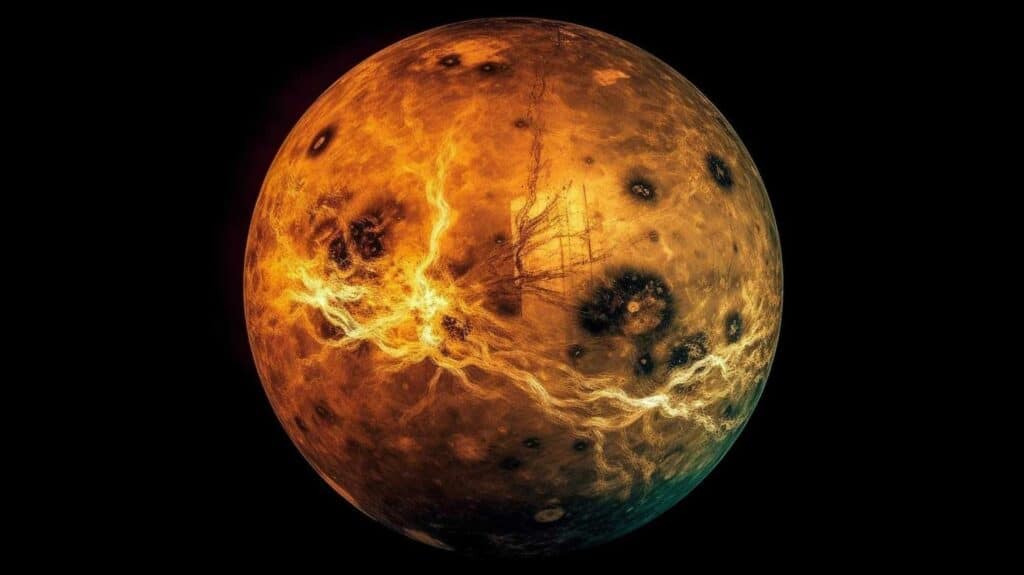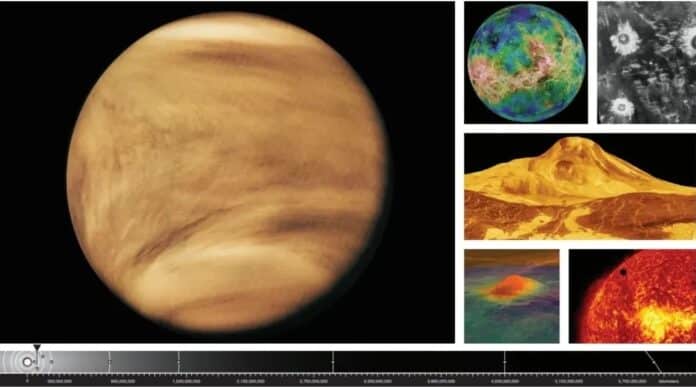Venus’s surface temperature is extremely high. It can melt lead, lava-spewing volcanoes, and puffy clouds of sulfuric acid. Despite all these conditions, Venus could offer vital lessons about the potential for life on other planets, suggests a new study.
Earth is most likely to be considered a perfect model of habitability. But when considered in isolation, not much is known about its boundaries and limitations. Venus offers clues on that.
Scientists compile most of the information about Earth and Venus in this new study. Their work describes Venus as an anchor point for scientists to better understand the conditions that preclude life on planets around other stars. They also found that Venus hosts a pressure-cooker-like atmosphere that would instantly flatten a human.
Many scientists believe that Venus’s destruction was caused by a runaway greenhouse scenario brought on by the planet’s insolation flux or the amount of energy Venus receives from the sun.
Further NASA mission exploration could resolve numerous unresolved questions concerning Venus. Currently, scientists are unsure about the size of Venus’s core, the reason for its sluggish rotation, and the evolution of its magnetic field. Furthermore, little is known about the compounds that make up its lower atmosphere.

Venus’s magnetic field may be weaker than Earth’s due to the difference in the size of its core. Knowing Venus’s core’s size could help us understand how the planet cools down. While the Earth’s mantle facilitates heat transfer from the core, Venus’s mantle mechanism is unknown.
The atmosphere of a planet is also influenced by its interior. Gases released by volcanoes are a major source of atmospheric pollution on Earth. For Venus, it’s probably the same, although further details are required to be specific.
UC Riverside astrophysicist and paper first author Stephen Kane said, “Currently, our maps of the planet are very incomplete. It’s very different to understand how active the surface is versus how it may have changed through time. We need both kinds of information.”
The paper supports sending missions to Venus mainly for two reasons. One reason is that by gathering better data about Venus, we can make sure our ideas about life on distant planets are accurate.
“The sobering part of the search for life elsewhere in the universe is that we’ll never have in situ data for an exoplanet. We aren’t going there, landing, or taking direct measurements of them,” Kane said.
“If we think another planet has life on the surface, we might not ever know we’re wrong, and we’d be dreaming about a planet with life that doesn’t have it. We will only get that right by properly understanding the Earth-size planets we can visit, and Venus gives us that chance.”
The other reason to research Venus is that it offers a preview of Earth’s future.
Journal Reference:
- Stephen R. Kane et al., Venus as an Anchor Point for Planetary Habitability, Nature Astronomyc (2024). DOI: 10.1038/s41550-024-02228-5
